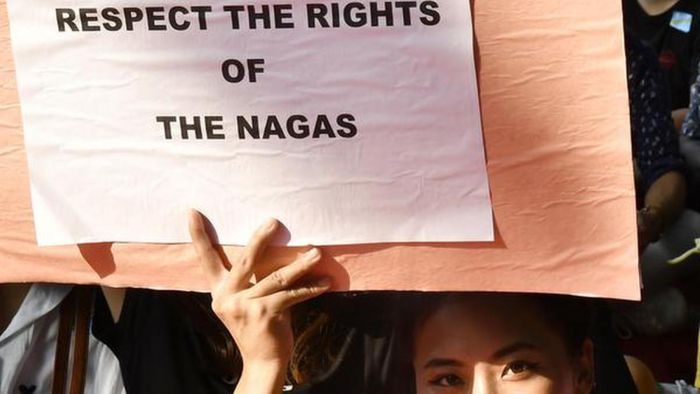Nagaland: Centre must honour Framework Agreement, says Naga civil societies
The government of India must honour its words in the Framework Agreement and resolve the Indo-Naga political impasse accordingly, says Naga civil societies.

- Apr 04, 2023,
- Updated Apr 04, 2023, 7:10 PM IST
The government of India must honour its words in the Framework Agreement and resolve the Indo-Naga political impasse accordingly, a joint statement issued by the Naga Hoho, Naga Mothers’ Association, Naga Students’ Federation and Naga Peoples Movement for Human Rights said on April 4.
It said a political dialogue following the ceasefire agreement in 1997 is in place and a Framework Agreement was signed in 2015 by the representatives of the government of India and the Naga people as the basis to work out the political agreement to resolve the armed confrontation.
“Although a decade shy of two years nearly passed yet the political resoluteness and honourable approach and guarantee on the part of the government of India remain a dangerous doubt,” the statement read.
Also Read: Nagaland to showcase state’s investment potential at B20 meet: CM Neiphiu Rio
It added: “On our part, the Nagas have agreed and committed to an enduring inclusive new relationship of peaceful coexistence of the two entities – Nagas and Indians,” it added.
Saying that the government of India must stop its militarisation and military operations, the four organisations said the Indo-Naga political conflict cannot be solved militarily and must be solved politically as admitted by no less than three Indian army generals and others.
They said former UN Secretary-General Boutros Boutros Ghali, while still holding office, had officially acknowledged the “untold sufferings of the Nagas” by observing that "there is human rights situation in Nagaland".
“Left with no option but to defend our political, social, religious and economic rights, we have resorted to confront and resist the occupational military forces of India and Burma. This war has ever since continued in the midst of two ceasefires,” the statement added.
It said the Nagas are peace-loving and humane people with great respect for peaceful coexistence. “We courageously defend our dignity as we respect and uphold the dignity of all people exhibited by our great hospitality,” it said.
It also implored the international community to humanly intervene in human rights violations in the “Naga country”, and recognise the Nagas’ legitimate political, social, economic and religious rights as enshrined in the United Nations’ declaration on the rights of indigenous people.